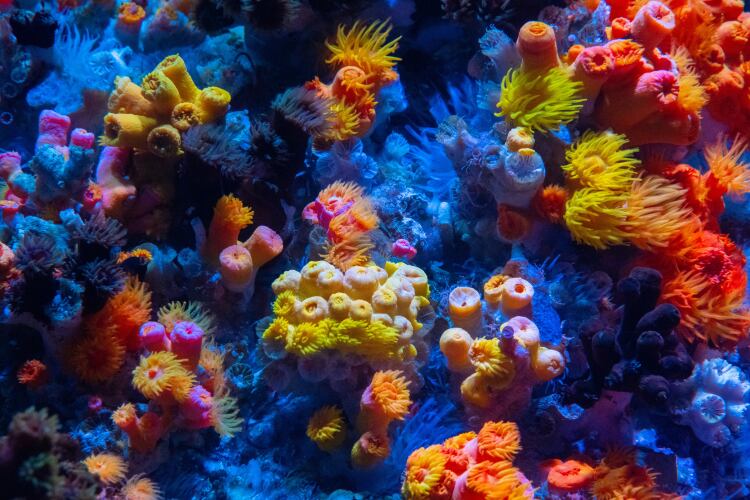Human activities are a major threat to coral reefs around the world. Warming seas, coral collection, pollution and overfishing are pushing these ecosystems to the brink. Recent research suggests 50% of the world’s coral reefs have already been destroyed, and forecasters warn that another 40% could be lost over the next 30 years. The implications of degradation are profound because coral reefs are home to at least a quarter of marine life.
“Climate change, overexploitation, destructive fishing practices and marine pollution have impacted ocean health significantly. Scientists estimate that if we do nothing, 90% of the world’s tropical reefs will be gone by 2043. Food companies sourcing from oceans have a responsibility to repair the damage,” Professor David Smith explained.
“The degradation of coral reefs threatens extinction for up to 25% of global marine life and impacts 500 million people who depend on the ocean as a source of food, income and protection. Addressing these challenges is not only good for the long-term health of the ocean, fishing communities and the planet, but also for business."
Professor Smith is Mars’ chief marine scientist. While the chocolate maker might not be synonymous with seafood, fish in particular is an important input for its pet care brands, Professor Smith explained. Mars therefore hopes to leverage the reach of its supply chain to combat coral reef destruction, in much the same way as its procurement might is leveraged with the aim of cutting its environmental impact across commodities like cocoa and rice.
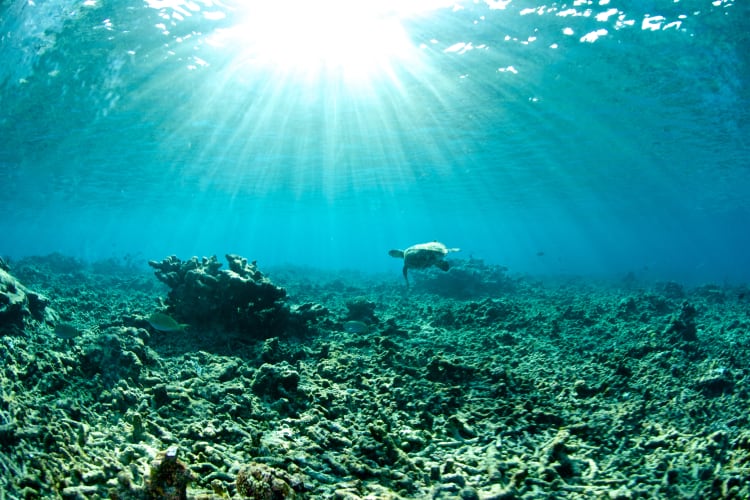
“At Mars, we have long believed that global supply chains are broken. It’s no longer acceptable to source ingredients based on price and quality alone – and it’s vital we transform supply chains to drive mutual benefits for the health of both people and planet,” Professor Smith told us.
“Many people don’t know that a large part of our portfolio is pet food, including Pedigree, Whiskas, SHEBA and Royal Canin. Fish is a key ingredient, particularly in our cat food products, which is why we’re working to ensure 100% of the fish we source is done so sustainably. However, we also recognize we need to act beyond our own supply chain if we want to drive long-term change across the industry and help protect vulnerable ecosystems.”
Introducing ‘The Big Build’
Mars recently revealed plans to launch a coral reef restoration project in 2023, ‘The Big Build’.
The initiative hopes to bring together conservation, scientific and NGO partners for what Mars describes as ‘one of the largest single restoration events in the world’. It aims to highlight the importance of cross-sector partnerships to deliver restoration at scale. Scheduled to coincide with the week of UN World Oceans Day, June 8, 2023, the event will convene partners to build 5000m2 of reef in just four days and outplanting 75,000 corals.
The event will take place in Spermonde Archipelago, Indonesia. This is a region where Mars has spent the past decade working with local communities, a local university, several government agencies, NGOs and critical industries to establish one of the world’s largest coral reef restoration programs.
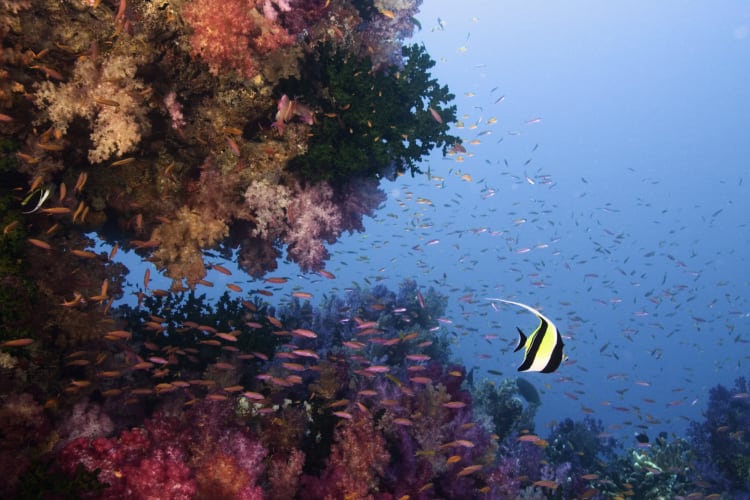
Through The Big Build, Mars will deliver advanced training for participants to help enhance global capacity to provide restoration practices and programs at scale.
And Mars has some important learnings to share. Since 2011, the company has been developing and refining a low-cost, replicable method of coral reef ecosystem restoration. This method, called the Mars Assisted Reef Restoration System (MARRS), is based on installing a continuous web of ‘Reef Stars’— hexagonal sand-coated steel structures with coral fragments attached — covering barren coral rubble fields and gaps between the remaining live coral on the reef.
MARRS-trained teams can restore damaged reefs at a greater speed, larger scale and lower cost compared to other approaches, according to the company. Experienced teams of four divers can install 500 reef stars in just two days, it claimed.
“Globally, Mars and our partners have installed more than 51,494 Reef Stars incorporating 772,410 coral fragments. This work includes the creation of one of the world’s largest restored coral reefs, the centre of which is the SHEBA HOPE Reef, located in the Spermonde Archipelago,” Professor Smith elaborated.
“Reef Stars have driven positive results around the world, with our projects increasing coral cover from 2% to 70% and fish populations by 175%, resulting in more than 25,000 fish per hectare at the Indonesian site.”
The approach also supports increased biodiversity, results suggest. The number of fish species present at the reef has increased by 10% over the same time period and new coral species settle underneath and onto the reef stars, driving coral cover, leading to further recovery of the reef community.
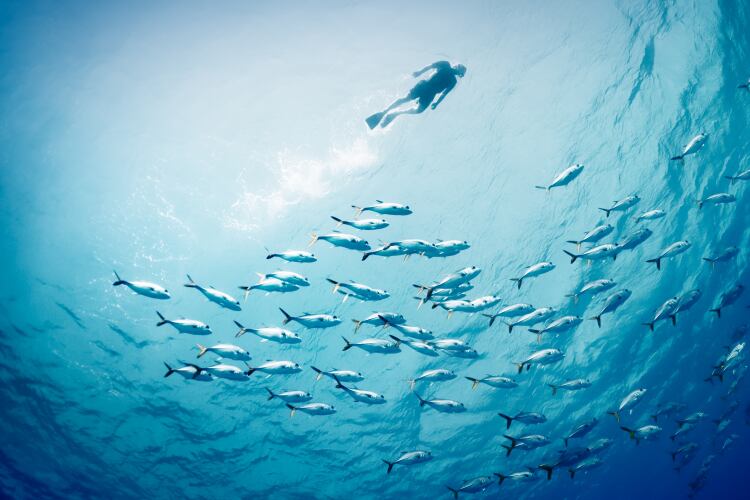
“While we’re proud of the progress we’ve made, it’s clear we need more investment from all sides of the private sector and from governments to accelerate the pace and scale of coral restoration efforts. Driving investment and building coalitions to restore coral reefs is mission critical. By joining forces with the public, private, NGO and scientific communities for hands-on coral restoration and knowledge sharing, we believe we can accelerate the pace of restoration globally,” Professor Smith said.
“By training more partners on the technology, while working closely with the scientific community to identify what’s needed to deliver resilient coral reef restoration at global scale, we hope we can help change the course of our coral reefs and our collective future for the better.”
Putting principles into procurement practice
Alongside its restoration efforts, Mars works to ensure the seafood it purchases does not contribute to coral reef degradation.
The company has established clear social, environmental, and ethical expectations for its suppliers through its Supplier Code of Conduct. “Specific to ocean health, Mars Petcare has established guidelines to identify the fish supply that it considers to be sustainably sourced. We expect our fish suppliers to not source endangered fish species, as defined by the International Union for Conservation of Nature Red List of Threatened Species, third party certified by an approved organization, and all materials and raw ingredients used must meet our own strict global internal quality and safety requirements,” we were told.
But beyond this, Mars recognizes it has a role in mobilizing and supporting its suppliers to ‘transform their operations in service of our sustainability ambitions’, Professor Smith noted.
“Transforming our supply chains and bringing suppliers on the journey will be critical if we are to deliver on our Sustainable in a Generation Plan. That’s why we’re a founding member of the Supplier Leadership on Climate Transition, a global coalition aimed at providing suppliers with the knowledge, resources and tools to develop their own climate plans to reduce their impact on the planet,” he said. "As of April 2022, Mars has engaged more than 85 suppliers to enrol in the program, with a focus on its 200 largest suppliers to maximize impact.
“Businesses have a responsibility to mitigate their impact on the environment they are reliant upon. But beyond this, we believe businesses can play a powerful role in restoration. Fixing these issues is a generational and a global challenge. Scaling conservation efforts and transforming the systems that drive climate change will require lasting and collaborative partnerships among businesses, industry, government and NGOs.”
Action on plastics and waste
Stemming the damage being inflicted on ocean ecosystems also requires action to tackle a problematic issue for the food sector: plastic pollution.
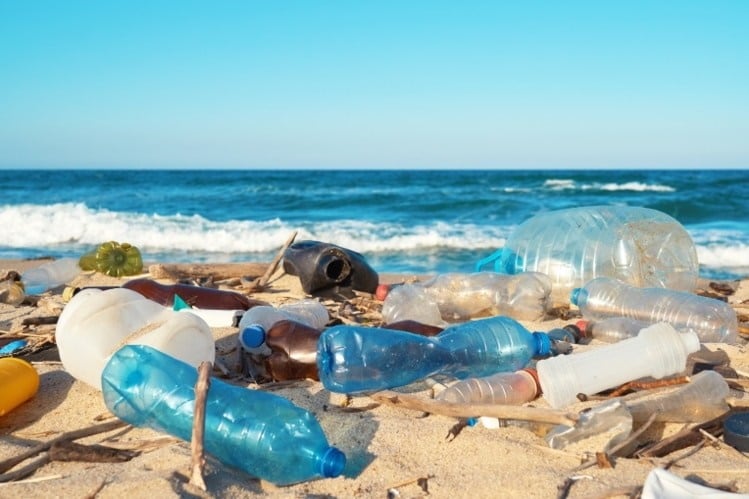
The amount of plastic in the ocean is expected to double in the next 15 years and by 2050 - if trends continue - there could be more plastic in the ocean than fish. Professor Smith said he is ‘deeply concerned’ about the impact of plastic waste and stressed that Mars is ‘committed to a world where packaging doesn’t become waste or end up in oceans’.
Packaging innovation is central to Mars’ approach. “Sustainable packaging is one of our top priorities at Mars, which is why we’re redesigning more than 12,000 packaging components – representing about half of our entire portfolio – to reduce plastic waste and ensure 100% of our packaging is part of the circular economy,” Professor Smith detailed.
Currently around 40% of the global catch is wasted or unmanaged, according to figures from the WWF. Mars’ pet nutrition brands also see an opportunity to increase the efficiency of the seafood sector and combat food waste by leveraging parts of the fish that would otherwise be discarded.
“While Mars Petcare accounts for a small share of the global fish market, we are determined to be a part of the solution. For our pet food brands, Mars uses animal by-products that offer ingredients of high nutritional value and are often outside of the human food chain, which minimizes waste. This approach also reduces strain on livestock production and avoids competition with the human food industry,” Professor Smith elaborated.

Within the company’s pet food brands, R&D is again being leveraged to reduce reliance on pressured seafood stocks by leveraging alternative sources of protein, the marine expert continued. “Beyond our current supply, we are investing in research and development of alternative protein sources and ingredients to replace existing marine ingredients that will supply the same nutrient and nutritional benefit in our pet food, along with exploring alternative sources of EPA.”
For example, recently Mars launched the first 100% insect-based cat food called Lovebug with protein from black soldier fly larvae. “The bugs used in the recipe were fed on surplus vegetables and take up 80% less land than beef, per kilo of protein, meaning that land use is reduced. Additionally, at Royal Canin, we are working on alternative sources of long chain omega 3 fatty acids known for their anti-inflammatory role (EPH/DHA) such as algae oil.”
All of these tools – from restoration and collaboration to innovation and R&D – must be used to full effect to drive the transition towards a more sustainable food system and turn the tide on coral reef destruction.
“The science is clear that we all need to act now to tackle the climate crisis and to restore ecosystems,” Professor Smith concluded. “Businesses have a global role in taking science-based actions to address threats facing the health of our environment that also support the UN’s Sustainable Development Goals.”
Mars will be joining our speaker line-up at this year’s Climate Smart Food digital broadcast event.
Over three days of live streamed content, FoodNavigator will explore what needs to be done to reduce the carbon footprint of food across scopes 1-3; how to support nutrition security in an era of climate breakdown; and what changes need to take place at a consumption level to support the development of sustainable food systems.
The event is free to attend. Register your interest here today.

